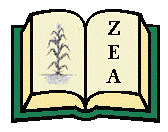
Zea E-Books Collection
Files
Download Full Text (3.2 MB)
Description
Japanese children in the 1870s and 1880s were offspring of a centuries-old traditional order who faced a world suddenly dominated by foreign science and commerce. As a child in Meiji Japan, Sakae grew up among survivors of the shogunate and observed their samurai culture displaced by Western morals and practices. Meanwhile the traditional values of Japanese life still exerted a strong influence over his family and education and played a large part in shaping his experience, as recounted with charm and tenderness in this simple and reflective reminiscence.
Sakae Shioya (1873–1961) attended Tokyo’s First Imperial College and came to the United States in 1901. He earned an M.A. degree from the University of Chicago in 1903 and a Ph.D. from Yale University in 1906, both in English. He translated works by contemporary Japanese writers, including Rohan Koda and Kenjiro Tokutomi. In addition to this childhood memoir published in 1906, his later works included Chushingura: An Exposition (1940).
Cover: Toyohara Chikanobu, Mother and Child (1900)
doi: 10.32873/unl.dc.zea.1324
ISBN
978-1-60962-247-3
Publication Date
4-18-2022
Publisher
Zea Books
City
Lincoln, Nebraska
Keywords
Japan, Meiji, childhood, boys
Disciplines
East Asian Languages and Societies | Japanese Studies
Recommended Citation
Shioya, Sakae, "When I Was a Boy in Japan" (2022). Zea E-Books Collection. 123.
https://digitalcommons.unl.edu/zeabook/123



Comments
Published 1906 by Lothrop, Lee & Shepard Co.